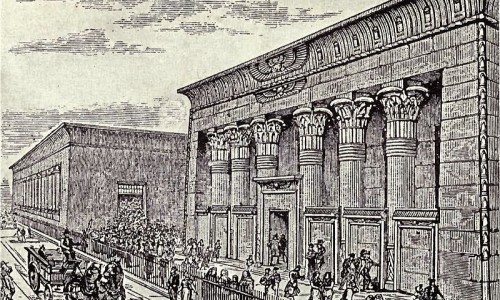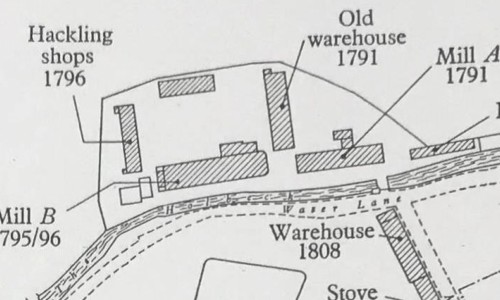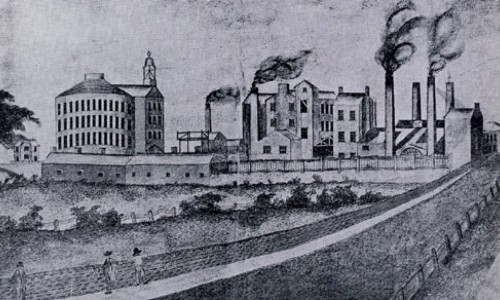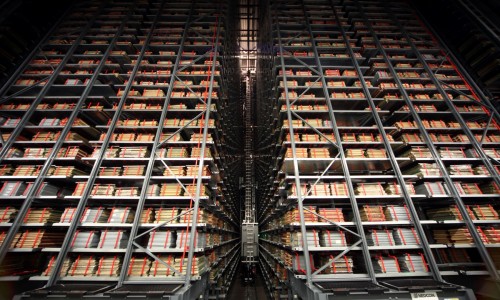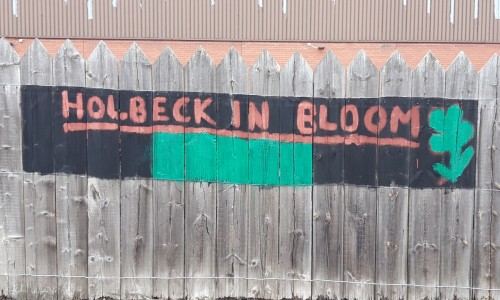Leeds welcomes the world? How a textile heritage can be the cornerstone of innovation
December 23, 2019
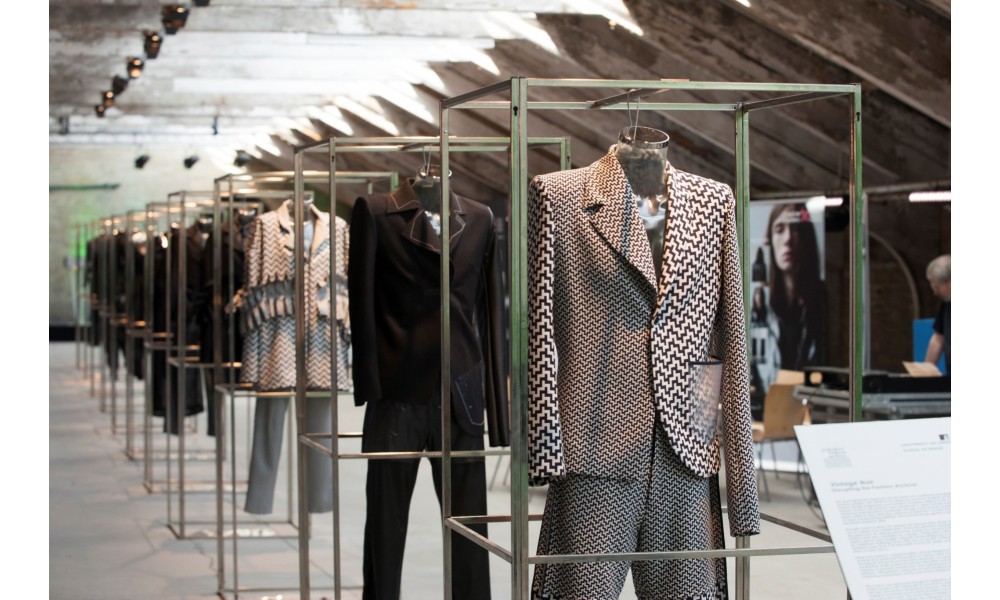
When you can point to a textile industry that is traceable back to the Middle Ages, and has developed through cottage industries and the mass production of cotton, linen and wool right up to the manufacture of clothes and fine tailoring, it may come as a surprise to today’s generation to know that, although the scale might be greatly reduced, the core of this industry survives.
Innovation has always been the foundation of industrial revolutions. The mass production of overseas textiles bit hard into this core Yorkshire industry in the latter part of the twentieth century. But for those who survived the global changes, it must be a little galling when, within its own towns and cities, there is often a lack of recognition for what the world still sees and appreciates as unique.
A city built on fulling mills, cloth markets and the very first large scale wool manufacture and flax spinning had to learn to deal with an industry which was now at odds with the cheap and often synthetic fabrics that were starting to be imported. The textile riches disappeared from the blackened and smog-choked streets of Holbeck and Leeds promptly established itself as a centre for fashion and clothing assembly with 30,000 people employed before the First World War, whilst names like John Barron, William Blackburn, Joseph Hepworth, Montague Burton and Henry Price made Leeds a world centre for the trade. As the market changed and the need for mass production reduced, Leeds found a niche in fine tailoring and bespoke suits, and yet that’s where the journey stalled.
But because there is such a rich textile heritage - and where this history can still be seen and touched in the streets and buildings and the infrastructure of a city - that sense of discovery and innovation never truly dies. The fabric of the city was in no small part built on textiles and clothing; their great successes, but it now seeks to preserve and enhance the importance of the industry for Leeds and its surroundings.

(Some of the blue plaques detailing the rich textile history in Leeds)
There is still clothing manufacture, fine tailoring and superior textile engineering in Leeds today, and Yorkshire still has an undisputedly high pedigree of mills that supply the likes of Prada, Chanel, Gucci, Burberry, Paul Smith and Alexander McQueen. And there is still a hunger to build on that industrial legacy and make use of ever-evolving technologies so that Leeds is the home of current and future invention and creativity again.
The UK fashion industry still exists; our designers sought-after by International brands, the finest woollen textiles still produced for those markets. Even if you think much of what the population wears is made cheaply and shipped in from the Far East, the UK employs over 890,000 people in the fashion industry and it contributes over £32 billion to the UK economy, up to £70 billion if you take account of every part of the supply chain. This mainly represents the higher value and higher quality sector of the fashion industry, but such revenue and commercial impact needs to be expanded and can tap into the country’s inherent academic and practical resources better. There is a growing understanding of the preference for consumers to move away from the throwaway clothing culture and instead invest in long-term quality pieces. The industry also needs more skilled people and it needs to compete and improve sustainability in the ever more technologically-driven world.
It was for these reasons that Yorkshire Textiles was set up some ten years ago as a not-for-profit umbrella organisation to promote the industry, a collaboration that in fact includes several trusted advisers of Temple developer, CEG. Yorkshire Textiles are long standing champions of the region’s luxury textile heritage and recognised the importance of the unique link to the fashion industry past, present and future.
That link must also be recognised through the pivotal role of academic research and teaching. In 1880 the Worshipful Company of Clothworkers had founded the Department of Textile Industries and Dyeing at the Yorkshire College (which was first formed as the Yorkshire College of Science, largely around the needs of the wool and textiles industry). It merged with the Leeds School of Medicine and eventually, in 1904, became the University of Leeds. It is fitting that now, in the 21st century, the Future Fashion Factory (FFF) has been established through the University of Leeds and we see the same roots and imperatives, but with a response fashioned around the digital age.
What is the Future Fashion Factory?
The FFF can be described in many ways, but in essence, it is a centre of excellence for the fashion and textiles industry. It is a collaboration that is outward-looking, connects straight to the core of industry and is driven directly by industry needs. Its various arms include research and development partnerships, collaboration with academic partners and providing a platform for textile manufacturers, designers and luxury clothing producers, who can then utilise the most technologically-advanced methods and practices to keep the fashion industry moving forward.
This means reducing waste in terms of materials and processes, and improving communication and production techniques using collaborative solutions. In short, the objective of FFF is to make the UK fashion industry smarter, swifter and more sustainable, whilst building on the vast knowledge that the region’s textile industry can boast.
(Watch a YouTube clip introducing the Future Fashion Factory)
FFF is funded to the tune of a £5.4 million investment over five years, and it was awarded the funding in a competitive arena by Government (UK Research and Innovation) via the Creative Industries Cluster Programme, and managed by AHRC – Arts and Humanities Research Council - as part of the Government’s Industrial Strategy.
To date FFF has over 160 member organisations, all contributing ideas, resources and energy to a variety of projects. As well as providing a continuum from the past, the FFF is also a vehicle through which the Leeds City Region can continue to have a world-class influence on the UK economy, via its fine textile production and luxury fashion industry. With active partners such as Burberry, British Fashion Council, UK Fashion and Textiles (UKFT) the big players are firmly on-side with the ambitions of FFF.
Long established but innovative mills such as Royal Warrant Holders, AW Hainsworth (Stanningley) est 1783 and Abraham Moon & Sons (Guiseley) are also amongst the key partners in this very high tech research & development partnership anchored by the Universities of Leeds and Huddersfield and the Royal College of Art. Alongside the University of Leeds, Hainsworth also feature as active supporters of the Leeds Inclusive Growth Strategy 2018 – 2023.
One of the first ways in which this development strand has combined centuries of heritage and the always-advancing technologies of today is through the digitalisation of historic practices. A special ‘heritage weave’ produced by a young textile designer Rebecca Ough, at AW Hainsworth, has used original punch cards produced for a jacquard loom that were unearthed from the Armley Mills Industrial Museum from the late 1800s. These represented (dating back to 1725) the first use of coding as a means of using binary language to transmit information, and hence were effectively the first computers. Rebecca has digitised the punch cards to turn a 19th century technology into a 21st century innovation, and has reproduced the cloth in an amazing project which demonstrates that a good idea is always a good idea, you just need to interpret the information differently. With an eye to the luxury market, bespoke short order runs, exclusivity and reducing waste, the project shows how flexible and commercially viable the industry can be.

(Photo credit: Carolyn Lord - the heritage weave produced by Rebecca Ough and the accompanying original coding cards)
The FFF is run by a small team of fashion and textile professionals. Director is Stephen Russell, Professor of Textile Materials and Technology in the School of Design at the University of Leeds. His co-director is Suzy Shepherd an expert in fashion, retail and marketing and the founder and director of Leeds Fashion Works and also Yorkshire Textiles Ltd. They work with a team of industry specialists and programme managers, such as Adam Mansell, CEO of the UK Fashion & Textile Association, who have a passion for textile and fashion but also the skills needed to ensure that years of UK manufacturing and design history is not lost.
The importance of textiles to a region and a country
19th century linen manufacture was one of the first UK trades to export to Europe during the industrial revolution, and today, this country is still renowned for fine materials and specialist tastes, but most importantly, the very best quality of product. Made in the UK, and perhaps more specifically, ‘Made in Yorkshire’ and ‘Made in Leeds’, used to really mean something, and while people may not know it, they still do. Mills in the region export up to 90% of their product globally.
(Watch a video of the First Annual Showcase event of the Future Fashion Factory held at Salts Mill, Saltaire in October 2019)
So why shouldn’t Yorkshire and Leeds be known again as the centre of manufacturing for high value textiles and fashion? Why shouldn’t all the wealth of artisan craft skills in the area, and the creative might of the many digital industries in Leeds, combine to create a thriving and energetic hub of fashion and textile expertise for the UK? Indeed, why can’t this then attract world class names, skills, ideas and abilities and become THE global centre for textile excellence and related creative industries?
The answer is that it can, and particularly so as Leeds is now established as a leading financial, legal, digital and cultural powerhouse and has the framework of a city that can hold its own with bold ambitions, having shaken off its restrictive inhibitions of the past.

(Photo credit: Future Fashion Factory - the FFF first annual showcase event)
It is clear that the Leeds area has the structure, vision and expertise to support every element of the fashion process, and in a sustainable way; to maximise the productivity derived from every single fibre of a garment. A range of skills including artisan and large-scale manufacture, design, processing, engineering and cutting-edge digital technologies can all be combined under one collaborative focal point in Leeds, and can find a natural home amongst an already-thriving creative scene. Sixth-form colleges, further education and higher education establishments would be eager to be involved in research and development projects and an exposure to the most superior standard of textile materials and design that Yorkshire as a whole has to offer.
The eyes of the textile world on Leeds City Region
And with a range of developments ongoing and in the planning process, Leeds can find the space to bring the best of the textile industry back to its spiritual home. Fashion is always changing and Leeds is always changing. Perhaps now is the time to bring them back together? ‘Made in Yorkshire’ is probably the strongest textile brand there has been and today the word ‘made’ has to involve so many more elements, and so it means so much more.
So the vibrant, self-motivated, challenging and ever-evolving city we know today was built on exporting linen and woollen cloth and apparel across the globe, and along with Bradford and Huddersfield, it developed an identity and was proud of it. And with the same energy, vision and collaborative spirit, FFF could be the catalyst for Leeds and the Leeds City Region finding its own identity on the world map again.
(Lead photo credit: Future Fashion Factory)

.jpg&w=500&h=300)
